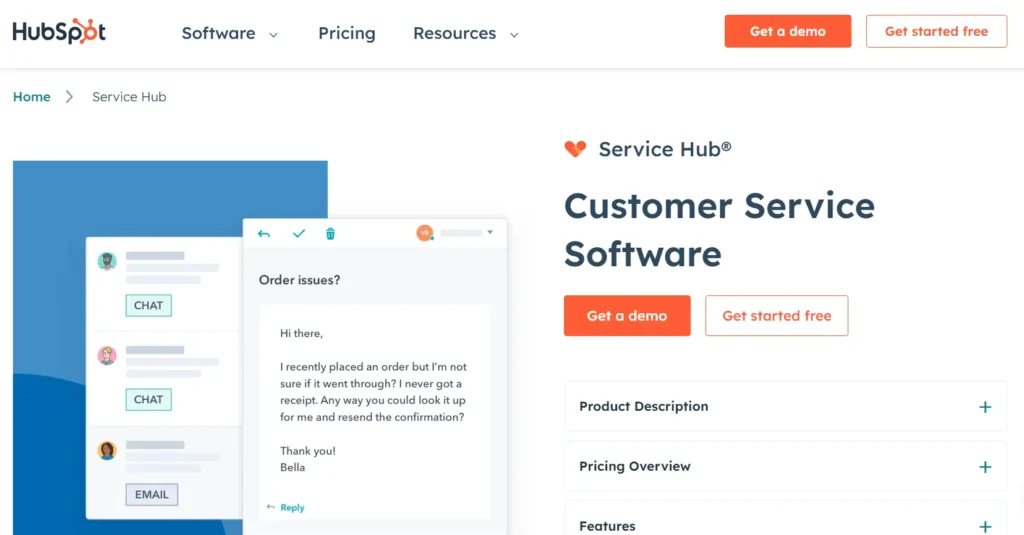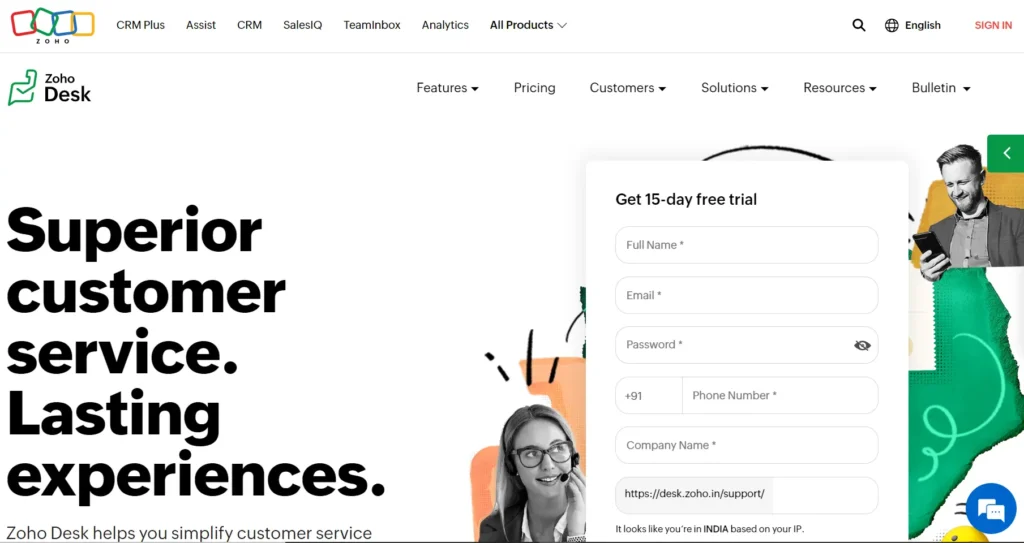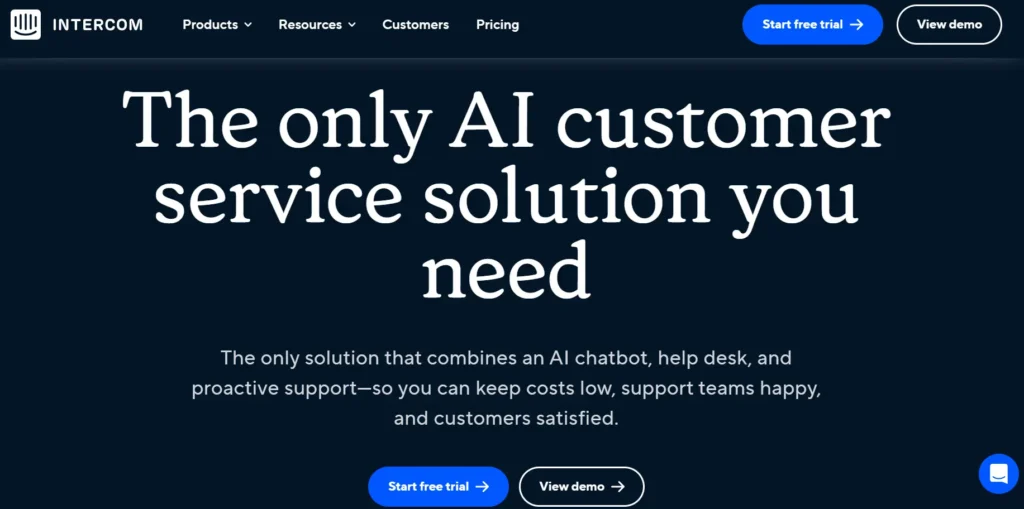Imagine a customer reaches out to your business on Twitter, frustrated with an issue. Your support agent seamlessly picks up the conversation via live chat, retrieves their purchase history, and resolves the problem within minutes. This frustration-free experience is what your customers get when you use an omnichannel customer service platform.
With advancements in technology and myriad ways of reaching out to a brand, customers today expect frictionless experiences across all channels. This has led to the rise of omnichannel customer service platforms.
But what exactly is an omnichannel customer service platform, and what features should you look for when choosing one?
In this blog, we will look at some of the benefits and essential features that you need in an omnichannel customer service platform. We have also curated a list of platforms you can consider for your unique needs.
Table of contents
What is Omnichannel Customer Service?
Omnichannel customer service is a strategy that provides a seamless customer experience across all communication channels.
It is an approach that unifies all service channels, be it online or offline, to ensure that your customers can switch between channels of communication without any interruption or loss of information.
The idea is to provide consistent, personalized, and convenient customer service throughout the entire customer journey.
Benefits of Omnichannel Customer Service
Benefits of Omnichannel Customer Service
- Improves customer experience
- Increases Efficiency
- Offer Comprehensive consumer insights
1. Improves Customer Experience
Omnichannel customer support allows your customers to use the most convenient contact channel, chat, email, phone, or social media. This adaptability enhances the whole customer experience and boosts customer satisfaction rate.
2. Increases Efficiency
Implementing an omnichannel strategy can help you streamline your customer service processes, making them more efficient and cost-effective. You can track all interactions and provide seamless customer experiences by integrating multiple communication channels into a single platform.
3. Offers Comprehensive Customer Insights
By implementing omnichannel customer service platforms, you can collect relevant data from several channels, giving you essential insights into customer behavior, preferences, and issues.
Analyzing this data helps you optimize your customer service strategies, customize offers to fit consumer expectations, and discover further development areas.
Top 7 Omnichannel Customer Service Platforms
Here are the list of 7 best omnichannel software:
1. Knowmax

Knowmax is a CX-first knowledge management platform powered by generative AI, which helps you provide omnichannel customer service across channels.
It acts as a single source of truth for all customer service information. This allows agents to access the same knowledge base regardless of their channel to interact with a customer.
Knowmax also streamlines content distribution. You can design knowledge base articles, FAQs, and even step-by-step visual guides (great for self-service!) all in one place, then designate which channels they should be available on.
Key features:
- AI-powered search
- Knowledge formats like Decision trees, FAQs, visual guides, and articles
- Advanced analytics
- Chrome extension
- Multilingual support
Pricing:
Contact sales@knowamx.ai
2. Salesforce Service Cloud

Salesforce Service Cloud is a customer service platform built on the Salesforce CRM platform. It provides a central console for agents to see all customer interactions from various channels (phone, email, social media, etc.) in one place.
Key Features:
- Case management and tracking
- AI-powered chatbots
- Customer self-service portals
- Analytics and Reporting
- Integration with Salesforce Sales Cloud and other Salesforce products
Pricing:
Starts at $25 per user per month for the Essentials plan, scaling up to $300 per user per month for the Unlimited plan with advanced features.
3. Zendesk

Zendesk is a cloud-based customer service platform and sales CRM known for its ease of use and flexibility. It helps you build better customer relationships by providing efficient and effective support across various channels.
Key Features:
- Omnichannel support
- AI-powered chatbots
- Self-service portals and knowledge base
- Automation and ticket routing
- Social media integration
- Analytics and Reporting
Pricing:
Starts at $19 per agent per month for the Suite Team plan, with higher tiers available up to $99 per agent per month for the Suite Enterprise plan.
4. HubSpot Service Hub

HubSpot Service Hub is part of the HubSpot CRM platform, providing a suite of tools designed to improve customer service and support. It integrates seamlessly with HubSpot’s marketing and sales hubs for a unified customer experience.
Key Features:
- Shared inbox and ticket management
- Automation tools
- Customer feedback and surveys
- Knowledge base and live chat portals
- CRM integration
- Multiple communication channels
- Reporting and Analytics
Pricing:
Free plan available with basic features. Paid plans start at $45 per month for the Starter plan, with more advanced options available up to $1,200 per month for the Enterprise plan.
5. Freshdesk

Freshdesk is a customer service platform from Freshworks. It caters to businesses of all sizes, providing tools to deliver customer support across multiple channels.
Key Features:
- Ticket management tools
- Central knowledge base
- Community forums
- Multiple communication channels
- Analytics and Reporting
Pricing:
Free plan available for small teams. Paid plans start at $18 per agent per month for the Growth plan, with higher tiers up to $95 per agent per month for the Enterprise plan.
6. Zoho Desk

Zoho Desk is a customer service platform offered by Zoho that helps businesses provide personalized and efficient customer support. It integrates seamlessly with other Zoho products and a wide range of third-party applications.
Along with that, it’s also possible to enhance it with ZOHO Desk VOIP integration for phone calling, allowing teams to handle customer interactions more effectively.
Key Features:
- Ticket management tools
- Social media integration
- Multiple communication channels
- Automation and customization tools
- Analytics and Reporting
Pricing:
Free plan available with limited features. Paid plans start at $14 per agent per month for the Standard plan, with advanced features available up to $40 per agent per month for the Enterprise plan.
7. Intercom

Intercom is a cloud-based customer communication platform that combines messaging, bots, and automation to deliver personalized support and engagement. It is designed to help businesses build better customer relationships through real-time communication.
Key Features:
- Automated chatbots
- Shared inboxes
- Customer messaging
- AI-powered routing
- Advanced Reporting
- Multiple communication channels
Pricing:
Starts at $59 per month for the Starter plan. Custom pricing is available for advanced plans and larger teams with additional features.
What Features to Look in an Omnichannel Customer Service Platforms
1. Single Customer View
A single customer view provides a central repository of the customer’s information and their interactions with your business across all channels.
This allows you to provide contextually aware and personalized support that considers the customer’s entire history with the organization.
A single view effectively improves customer satisfaction rates by providing tailored support that meets their needs.
2. Seamless Channel Integration
Seamless integration across multiple communication channels, such as email, phone, chat, social media, and SMS, is crucial for an effective omnichannel customer service platform.
Your customers expect consistency and simplicity when switching between channels. And a platform that integrates these channels allows for smooth transitions and ensures that questions are handled quickly.
2. Self-service Option
Self-service allows your customers to solve their problems independently, decreasing the need for agent intervention.
It also lowers the number of routine support questions while helping you provide an exceptional service regardless of time or agent availability.
3. Personalization
Personalization is important to consider when establishing an omnichannel customer support platform.
This makes your customers feel looked after as you can understand their requirements and preferences and can cater to them accordingly. This results in enhanced customer happiness and loyalty, as well as higher sales and profitability.
An omnichannel customer service platform can help you personalize your communication with the customers by using customer data to adapt suggestions or providing tailored services depending on customer preferences.
Omnichannel Customer Service Platforms FAQ
Omnichannel customer service is the smooth integration of many channels so your customers can switch between them without losing context. It delivers a uniform experience across all channels.
Multichannel customer support, on the other hand, provides multiple channels for customer engagement. However, these channels may not be connected. Each channel runs independently, which can lead to disconnected customer experiences.
Phone, email, chat, social media, in-person interactions, and other digital platforms are the channels that form omnichannel customer service.
To implement an effective omnichannel strategy, you should:
1. Understand your customer’s preferences and habits
2. Invest in a comprehensive omnichannel customer service platform
3. Maintain a consistent brand voice and message across all channels
4. Ensure smooth transitions between channels when a customer needs to switch
5. Train your agents to handle interactions across various channels
6. Continuously improve based on user feedback and changing customer needs
These practices can provide a seamless customer experience and increase happiness and loyalty.
Omnichannel customer service provides a seamless experience for your customers across all touchpoints, allowing them to engage with your business in the most convenient way.
This improves the customer experience by increasing convenience, reducing response times, enabling personalized interactions, and ensuring consistency across all channels.
 18 Min
18 Min









 Word Document)
Word Document) Excel File)
Excel File)






